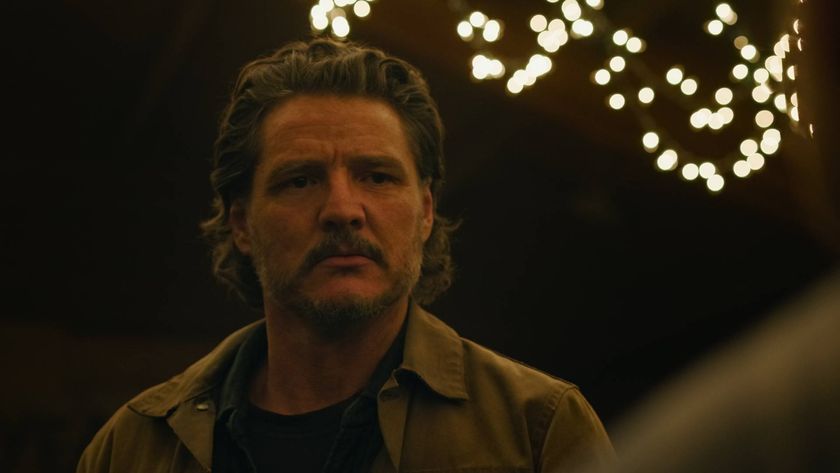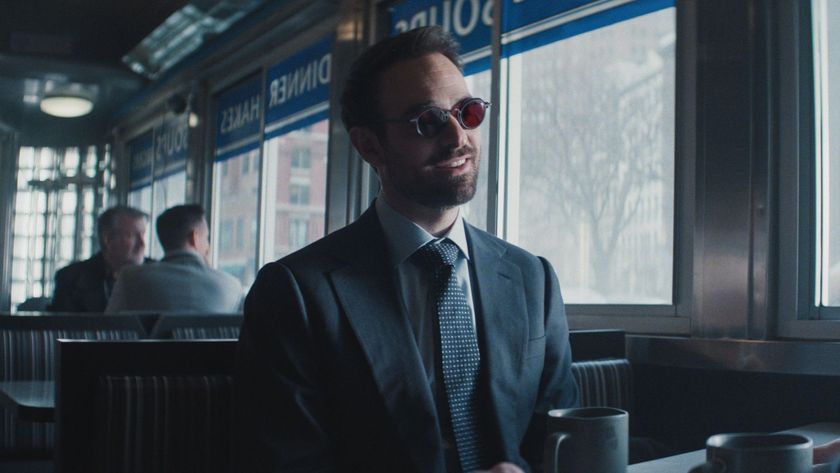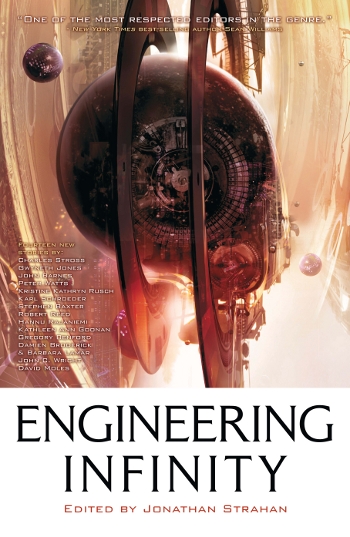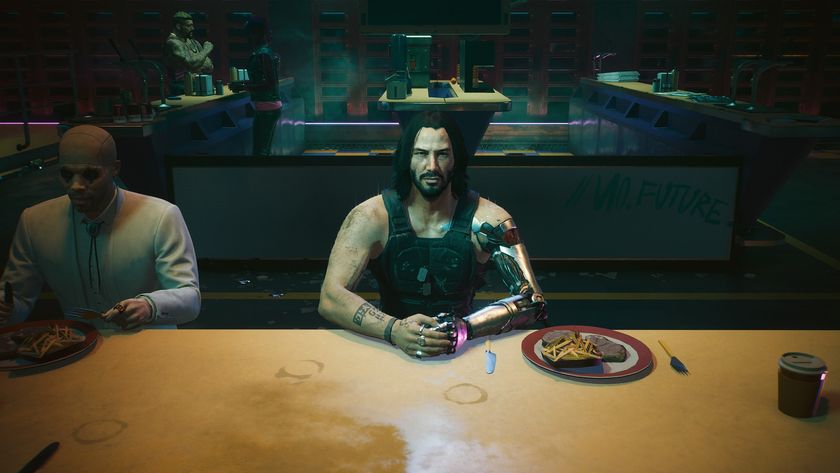Why you can trust 12DOVE
Really hard SF by big-brain authors
What is hard SF? Jonathan Strahan asks himself at the beginning of this anthology. The writers here try their best to answer him.
There’s not a bad story in this book, but they will not entertain everyone. Most take “hard SF” (uncontentiously) to mean science fiction where the “science” is all, hearkening back to the Golden Age days of the scientist/engineer/writers - Asimov, Clarke et al. But those were simpler times, with simpler sciences, and the presumed uncertainties of the coming Singularity (a theorised period of time where technological development becomes so rapid it becomes hard for us to imagine it) make Engineering Infinity’s stories less accessible. Further clouding the water, our agnostic, uncertain age has fostered a yearning for the numinous in SF. Arcane scientific terms are spat out rhythmically in Peter Watt’s “Malak” and Hannu Rajaniemi’s “The Server And The Dragon” to attain a trancey, mythic prose poetry, but stories like these don’t quite engage. It’s the human angle that’s lacking; ideas trump all, but whether that’s a flaw inherent to this collection, hard SF or even simply the SF short story form, is open to debate.
It is possible to write fiction that’s scientifically genuine and humanly relevant. It’s also hard to see, to non-scientists like us, if all these stories are steeped in genuine science, or if some merely cast a polysyllabic cloak about themselves for the appearance of such, like Star Trek and its technobabble.
If you’re au fait with the periodic table, the murkier parts of quantum physics and biochemistry you’ll lap it all up. We lesser mortals can still enjoy the skill on display, and revel in those stories that speak to both head and heart – “Watching the Music Dance” by Kristine Kathryn Rusch, is the book’s best human story, about bad parenting. “Laika’s Ghost” by Karl Schroeder is new old-school SF in all the right ways. “The Birds And The Bees And The Gasoline Trees” by John Barnes (no, not that one) has a James Cameron-esque science flick feel to it… And on a different tack, if you buy into the Singularity, like zombies and Charles Stross’s high science/hyper-nerd schtick, you’ll love his “Bit Rot”. All have strengths.
From this, can we define what hard SF is? Once it meant men with brilliantined hair and cigarettes, stuck with problems that needed thought, atomics and a spanner to solve. Now it means polysexual post-humans fretting over eco-damage and machine-aided apotheosis. But it’s still all engineering.
Guy Haley
Ian Berriman has been working for SFX – the world's leading sci-fi, fantasy and horror magazine – since March 2002. He's also a regular writer for Electronic Sound. Other publications he's contributed to include Total Film, When Saturday Comes, Retro Pop, Horrorville, and What DVD. A life-long Doctor Who fan, he's also a supporter of Hull City, and live-tweets along to BBC Four's Top Of The Pops repeats from his @TOTPFacts account.

The Last of Us season 2 release date revealed with new Ellie, Abby, and Joel character posters teasing "every path has a price"

Marvel producer says test audiences loved scrapped Daredevil: Born Again episodes, but "a lot" of their material made it into the final show anyway
Most Popular





